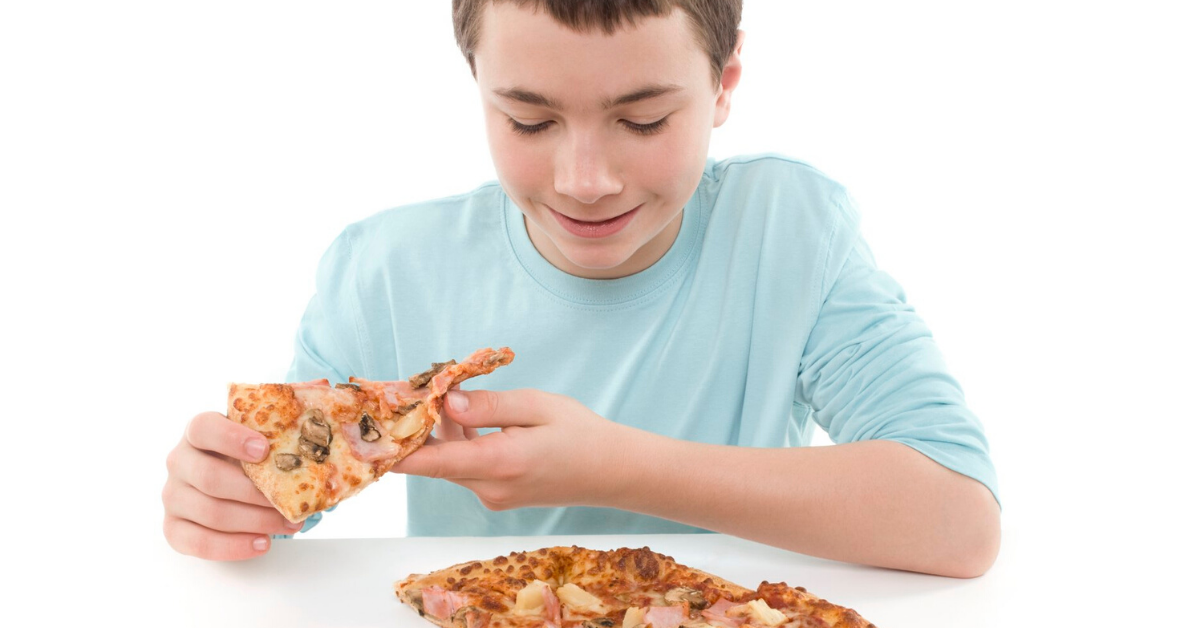
Fifteen-year-old Jamie would be prowling the kitchen pantry in the wee hours of the night. He could easily wolf down packs of Oreos, gallons of cola bottles would disappear during the week and his mother would find empty wrappers of chips and chocolates each morning. Jamie was a junk food junkie. Olivia, thirteen, who would love her fruits and veggies would now turn her nose at the same meals and only settle for pizzas, burgers, fries, donuts, cupcakes, tubs of ice cream or a combination of all. Olivia had also joined the junk food junkie team. Does either of these scenarios sound familiar?
All parents imagine they are the authority on the right eating and healthy lifestyle but you would be surprised how junk food can slowly creep into their meals and before you know it, take over their well-guarded routine. This topic helps you navigate those tricky decisions and enable your child to make better choices. They can gobble up a chocolate bar but the fruit has to disappear as well or how they can have chips and sauce for dinner this one time if they are willing to work up a sweat by cleaning out the attic.
The first step is to identify why they are eating this way. There are only two reasons for this – physiological and psychological. Physically, every growing body has needs and some of them are substituted with a good diet. If there is no good diet or no one to help enforce it, the child will turn towards the poor alternative – junk food easy fixes. You need to identify where the gaps are and plug them fast. For instance, sweet drinks can easily be replaced by iced teas, fruit or herb-infused waters or lemonades. They contain less than half the amount of sugar, are as refreshing and hydrate the teen (as well as the adult) body.
Similarly, junk foods such as pizzas, burgers, fries, chips and all sorts of sweet treats are OK if consumed sparingly. So keep a set day of the week for one junk food item of their choice and substitute the rest of the week with great home-cooked meals like greasy burgers for home grilled meat or vegetable sandwiches with multigrain bread, fries to be replaced by crunchy and sweet bell peppers, carrots and cucumber sticks, pizzas to be replaced by whole wheat pasta with roasted veggies.
If your teen is addicted to junk food because of psychological reasons, this may be tricky to identify and possibly harder to replace their snack choices. The problem goes deeper than the surface. Here are two reasons why your child is hooked to these high-calorie meals and how you can get them to switch to healthier alternatives
- Using food as love – usually, this is a painful reality and doesn’t just affect teens. The need to be loved, validated by society, acknowledged and respected by all is so strong within all of us. If we don’t see this happening, we tend to move towards other sources and may also abuse it. How can you detect this? Does your child reach out for chips and chocolates after an argument with their friends? Do you see them binging on burgers when they have been ignored by you or your spouse? Do they hide in a corner guzzling colas after either of you have snubbed them for poor grades or any other issues? Then most likely they are trying to soothe their pain by eating high calorie or sugar-rich meals.
What they need is for you and your spouse to connect with them and let them know this is not OK. Next, they need to face their fears and not hide behind a pack of chips or drown in a bag of twinkies. Sometimes we face disappointment, we may not get the love and respect that we hope for but this shouldn’t stop us from still reaching out. Set aside time to talk to your child. Make a mealtime, family time, where all of you can sit and discuss the events of the day. More than anything, you need to show your child more love and attention so they don’t choose food for the same comfort. This process won’t be easy but don’t give up. If you are consistent, your child will see that you are emotionally there for them and stop using food to meet their psychological needs
- Using food as entertainment – You love your child and demonstrate the caring, supportive nature but you still find them reaching out for poor diet choices instead of healthier alternatives. They are using food for entertainment. Sounds bizarre? It’s actually quite common and usually, parents are to be blamed. Do all your meal times revolve around the TV ? Do you prefer vegging out to a giant pizza and Netflix entertainment during the weekend instead of going for a weekend picnic? When friends come over, does your conversation revolve entirely around food, restaurants, more places to eat and the newest and craziest food fads instead of discussing other topics like movies, news, happenings around the community or work? Then you are teaching your teen to use food as a means of entertainment. From the time they wake up until they go to sleep, junk food will play on their mind.
Fixing this is easy but you may have contributed towards the problem so you need to lead by example. First, stop using food as a topic of discussion for any get-together. This can be harder than it sounds but with practice you will see there are other things to talk about. The daily lives of your child and yourself, events of the world, future plans, activities around your neighborhood and community. Your child will grasp these like a sponge and soon be an equal contributor. You may also need to change your approach for entertainment. Stop watching TV or any media during all meal times, weekend activities should now change to a walk in the park, roller skating or cycling around the block, discover the new theme park or go window shopping at the local mall. If you can get more adventurous, getaway for the weekend to the nearest hiking trail or beachside resort or camping. The purpose of all these activities is to enable your teen to discover life outside of junk food and turn towards healthier alternatives.



